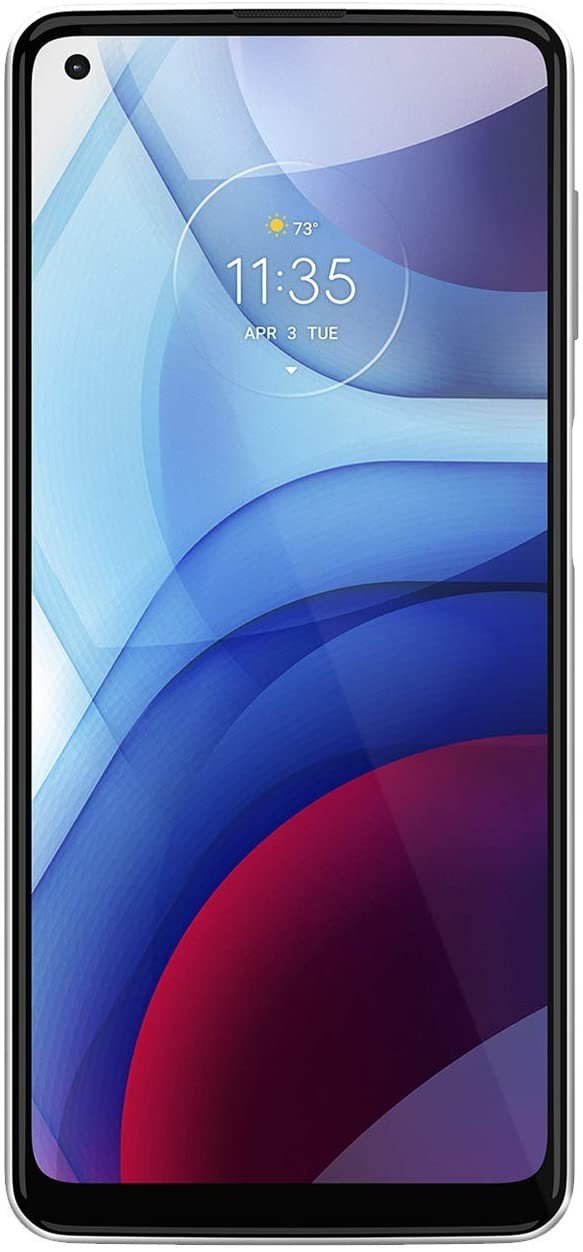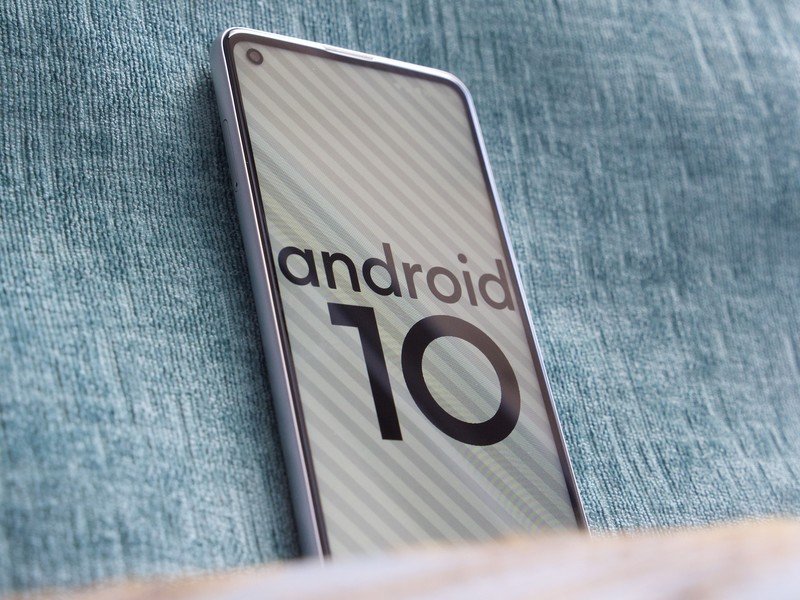Moto G Stylus 5G vs. Moto G Power (2021): Which should you buy?

Moto G Stylus 5G

The Moto G Stylus 5G brings a large display with a sharp enough resolution to see what you're doing clearly, which will come in handy if you're going to make use of the built-in stylus regularly. Its 5G connectivity, large battery, and Android 11 operating system make it a bit more prepared to last for a few years, but it comes with a major price uplift.
Moto G Stylus 5G
For versatility
Moto G Power (2021)

The Moto G Power (2021) is a simple phone that may hint at complexity with its three cameras, but its main selling points should really be its large display and large battery. It doesn't have high-end performance, and its display isn't super sharp, but it will likely do the job for more casual smartphone use.
Moto G Power (2021)
For affordability
The Moto G Stylus 5G and Moto G Power (2021) may come from the same family of Moto G phones, which often rank among the best Motorola phones. The two devices bear a striking resemblance, but these new models offer two very different smartphone experiences – a shift from the 2020 models' matchup.
At roughly double the price, the Moto G Stylus 5G is in a different class, with the specs and 5G connectivity to back it up. Meanwhile, the Moto G Power (2021) has come with some considerable downgrades from its predecessor, and it doesn't even have a leg-up in terms of battery this time around. Despite the price difference, both are still contending to be the best cheap Android phones. If you just need an affordable phone that won't fall apart soon after purchase, the Moto G Power (2021) will work. Still, the Moto G Stylus 5G will offer those with the room in their budget a more capable and dependable smartphone that will have a longer useful lifespan.
Moto G Stylus 5G vs. Moto G Power (2021): Price and availability

The Moto G Power (2021) was the first of the two phones to market, coming earlier this year at a $200 price point. However you roll the dice, it's the more affordable of the two phones, and its age will likely help you find discounts that shave a few dollars off the price tag.
The Moto G Stylus 5G is just now coming to market in June at $400, so it likely won't see any discounts right away. It's also coming not long after the release of the Moto G Stylus (2021), which might not be so confusing if the 5G model were more similar to the non-5G one.
Moto G Stylus 5G vs. Moto G Power (2021): In-depth specs
On paper, you'll find many similarities between the Moto G Stylus 5G and the Moto G Power (2021). You'll even find they look fairly similar beyond the color schemes and the rear camera bump. But, the Moto G Stylus 5G comes with several critical upgrades over its Power counterpart to help justify its higher price.
Be an expert in 5 minutes
Get the latest news from Android Central, your trusted companion in the world of Android
The screen will be one of the more important upgrades for many, as the higher resolution and extra space will make it that much more pleasant to interact with the phone. That extra screen real estate doesn't come with a major trade-off in size or weight either, as it's only a couple millimeters taller and wider and actually manages to be thinner than the Moto G Power (2021).
The Moto G Power (2021) display is surprisingly a downgrade over the previous model year, enough so that visuals can appear soft due to the lower resolution. And then, there's the fact that the Moto G Stylus 5G includes a built-in stylus. It's a passive stylus that works more like a precise finger than anything else, and you could just as easily buy a cheap stylus for the Moto G Power (2021).
| Header Cell - Column 0 | Moto G Stylus 5G | Moto G Power (2021) |
|---|---|---|
| Operating System | Android 11 | Android 10 |
| Display | 6.8-inch LCD 2400 x 1080 | 6.6-inch LCD 1600 x 720 |
| Processor | Snapdragon 480 | Snapdragon 662 |
| Memory | 4 or 6GB | 3 or 4GB |
| Storage | 128 or 256GB | 32 or 64GB |
| Expandable Storage | Yes | Yes |
| Rear Camera 1 | 48MP | 48MP |
| Rear Camera 2 | 5MP macro | 2MP macro |
| Rear Camera 3 | 8MP ultra-wide | 2MP depth |
| Rear Camera 4 | 2MP depth | n/a |
| Front Camera | 16MP | 8MP |
| Security | Fingerprint | Fingerprint |
| Connectivity | 802.11 a/b/g/n/ac, Bluetooth 5.1 | 802.11 a/b/g/n/ac Bluetooth 5.0 |
| NFC | No | No |
| Ports | USB-C 2.0 | USB-C 2.0 |
| Audio | Loudspeaker, 3.5mm headphone jack | Mono speaker, 3.5mm headphone jack |
| Battery | 5,000mAh, 10W charging | 5,000mAh, 15W charging |
| Water Resistance | Water repellant | Water repellant |
| Dimensions | 169.54 x 77.48 x 9.35mm | 165.3 x 75.9 x 9.5mm |
| Weight | 217g | 206g |
| Material | Plastic | Plastic |
| Colors | Cosmic Emeral | Flash Gray, Polar Silver |
Under the hood, the Moto G Stylus 5G's Snapdragon 480 chipset may sound like it would be inferior to the Moto G Power (2021)'s Snapdragon 662. Still, it's actually a more recent design, which should lend it some performance gains over the Power's as well as improved efficiency. However, this is the first phone we've seen a phone running the Snapdragon 480. We can't be entirely certain it will outperform the Snapdragon 662, which was a touch sluggish in our testing. The Moto G Stylus 5G does pack in considerably more storage and memory, though, which should help see the phone run more consistently in most situations.
The cameras may also be a major point of differentiation between the two phones. They appear to share the same 48MP primary sensor, which should see them offer fairly similar results for most of the photos you take, though computational photography could still see one take the lead. But, where the Moto G Power (2021) has dismal secondary sensors on the back, the Moto G Stylus 5G should offer more versatility thanks to its inclusions of an 8MP ultra-wide sensor to let you capture more in a shot as well as a 5MP macro sensor that will snag more detail than the Power's 2MP macro sensor.
Moto G Stylus 5G vs. Moto G Power (2021): Android and 5G matters

The Moto G Stylus 5G's Snapdragon 480 chipset enables it to provide the 5G connectivity that will prepare the phone for carriers' growing 5G networks and the speed upgrades that come with them. Though the Moto G Power (2021) may work perfectly fine on 4G LTE networks at present, several carriers are repurposing their 4G infrastructure to run 5G instead, so the phone could see dwindling support on networks over time. However, there's no telling how quickly that will happen. For the moment, the differences between 4G LTE and 5G aren't always obvious in everyday use, so it's possible the upgrade to 5G now won't make a major difference in your experience.
What's going to hold the Moto G Power (2021) back in the shorter term is its operating system. The phone launched with Android 10, which was already outdated, and Motorola has only confirmed one upgrade. In other words, the Power will get Android 11 and stop there. Meanwhile, the Moto G Stylus 5G is launching with Android 11, so it won't end up running on an outdated operating system as soon – assuming Motorola provides at least one operating system update for it as well.
Moto G Stylus 5G vs. Moto G Power (2021): Which one to get?
If you spend a lot of time on your phone, the Moto G Stylus 5G will serve you far better than the Moto G Power (2021). You'll have an easier time seeing what you're doing, the system will likely be faster in all applications, and you'll get a little more utility out of the cameras, all while continuing to get ample battery life.
But, if you're just calling and texting and making the occasional photographic memory, the Moto G Power (2021) will likely be able to suit your needs at a fraction of the cost, making it that much easier to afford an upgrade in a couple of years. All that said, the Moto G Stylus 5G's higher price point opens it up to more competition from the likes of the Google Pixel 4a and quite a few more quality Android phones under $400.

